My creative roots
My creative roots
[5 minute read]
My creative profile
Name: Alexander Karl Kneip
DE, Gelsenkirchen, Design, Local, B2C
“Wo ist die bunte Kreide wenn der Lehrer nicht da ist?” [Me in school in the 90s]
Tools
Pencil&Paper, Colored Pencils, Colorful Chalk, Coal, Corel Draw, Corel Photo, Adobe PageMaker, Maxon Cinema 4D, Cubase
Start doing real design work
As a teenager, I did quite well in art classes at high school in Gelsenkirchen Buer in Germany.
At the same time, I had a lot of fun taking part in the school theater group, the school choir and the school band. Here I often had the opportunity to design flyers or posters for events.
On this page I would like to present two projects that took place outside of school in the real business world during my school days.
Band Mabrruq
Band Mabrruq
Company Profile
Name: Mabrruq
DE, Gelsenkirchen, Entertainment, Small, B2C
“Life is what it is, even if it isn't” “Es dreht sich” [Band Mabrruq in the 90s]
Core members
Florian B. [Keyboard, Guitar, Drums, Composer, Lyrics writer, Digital music editing]
Peter L. [Bass, Guitar, Composer, Lyrics writer]
Alexander K. [Lead Singer, Keyboard, Accordion, Lyrics writer, Media Designer]
Benjamin J. [Singer, Guitar, Piano, Composer, Lyrics writer]
Daniella K. [Singer, Guitar, Photographer]
Business goal More gigs
In 1992 some friends from school and I founded the band Mabrruq. I was the lead singer and played also the keyboard and the accordion. My future wife was responsible for photographs and I did the visual design work including print management.
Music genre
We played rock music the most. Above all, we wanted to learn to compose music ourselves. Our role models were Queen and rock 'n rollers like Chuck Berry. We liked things to be more complicated and also experimented with the structures of our pieces outside of the usual alternation of verse, chorus and solo.
Design work
To promote a Band a lot of design work is needed like posters, flyers, tickets, T-shirts or a cd cover. And this is where I started my design career, creating digital visual art for our school band Mabrruq.
Small successes
By 2000 we managed to make some money outside of school with our gigs. This enabled us to gradually purchase additional equipment for our music performances. And sometimes we were paid in beer.
We only became known in our hometown and were able to earn a little money from gigs outside of Gelsenkirchen. The band t-shirts were bought by a few fans and at least we recorded a CD with the title 'Es dreht sich'.
Separation at the turn of the millennium
Unfortunately, we didn't find a common direction for further development after school. Most of the members wanted to continue music as a hobby and not, like parts of the other band, work on a music career that was designed to make money. And so a few years after the turn of the millennium, we separated after almost a whole decade as friends and band.
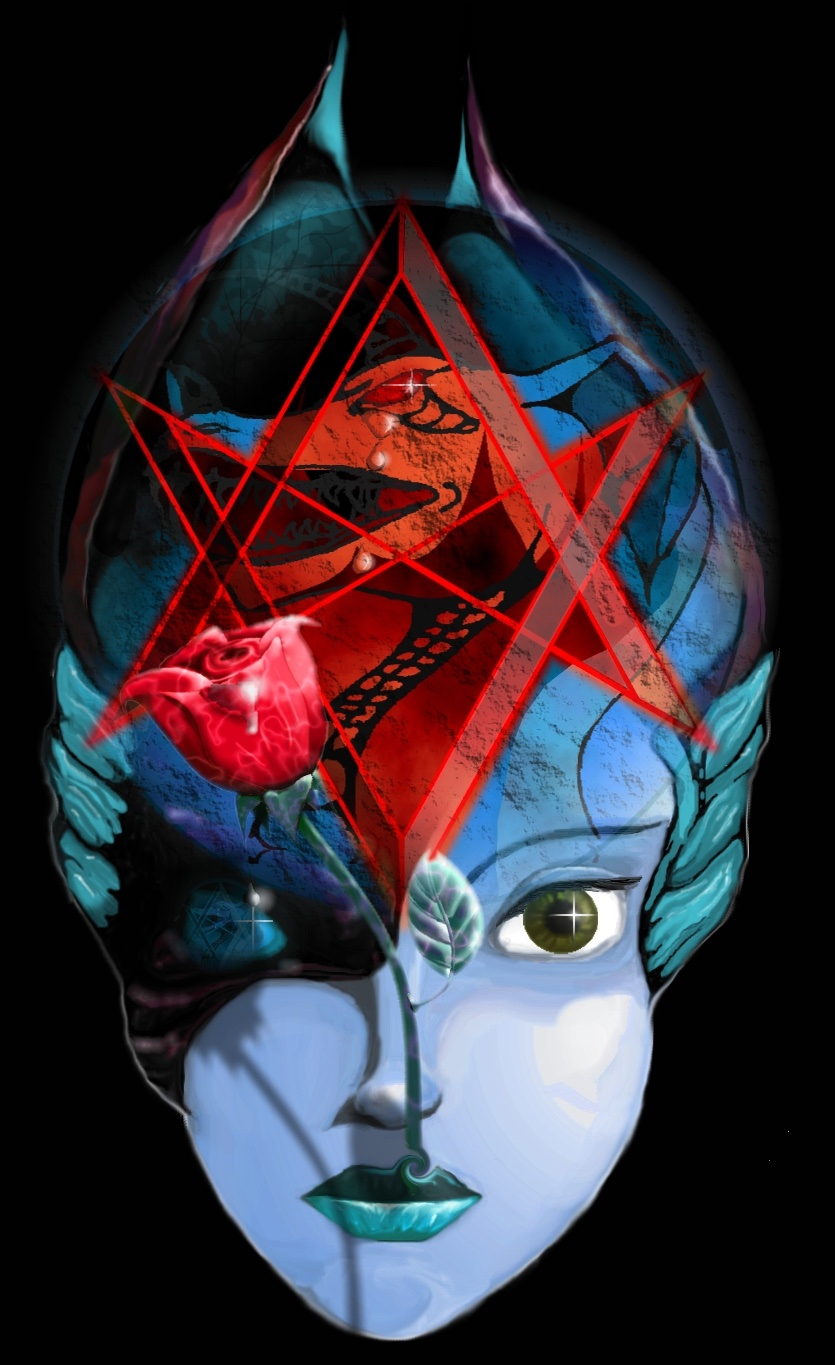
[Top image]
This is a visual I created for our band t-shirts in Corel Photo. The face was drawn using a digital brush and the mouse.
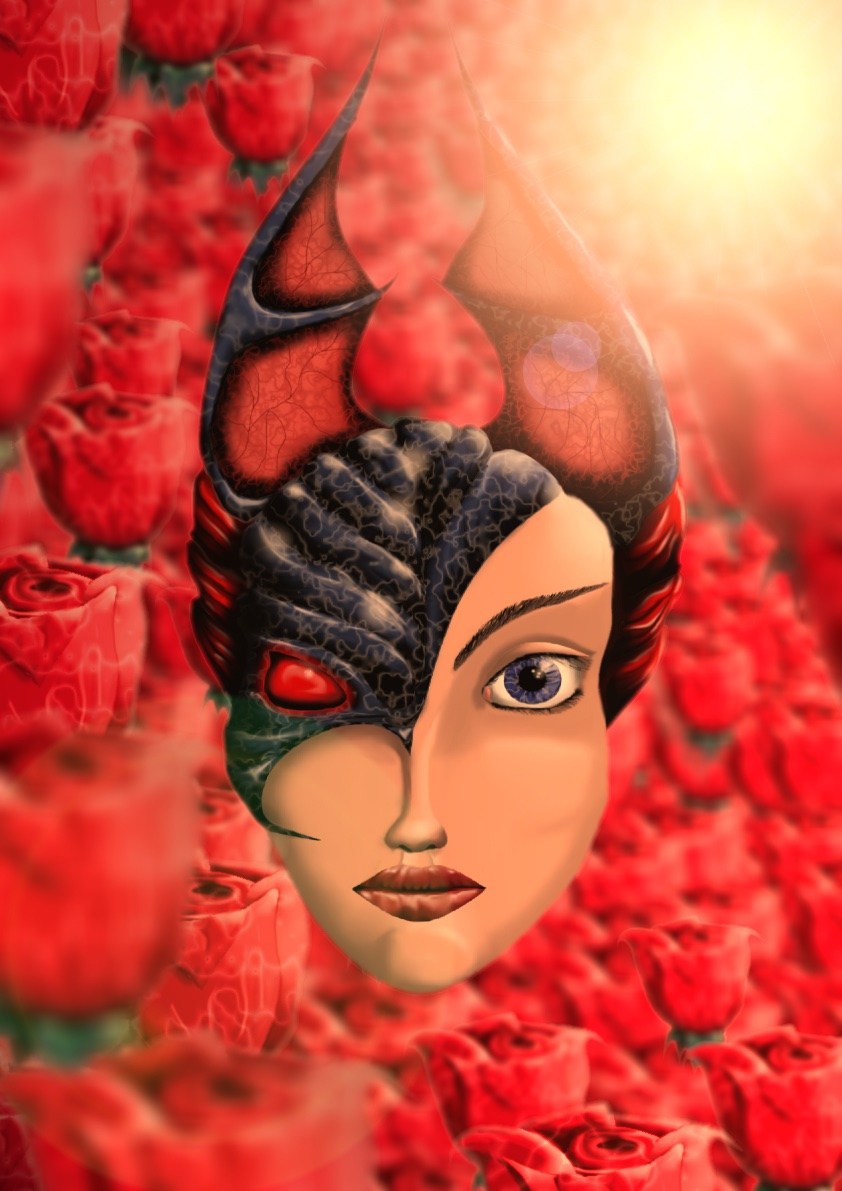
[Top image]
This is a variation of the previous digital painting. To create this image, I experimented with Corel Photo's Image Brush for most of the background.
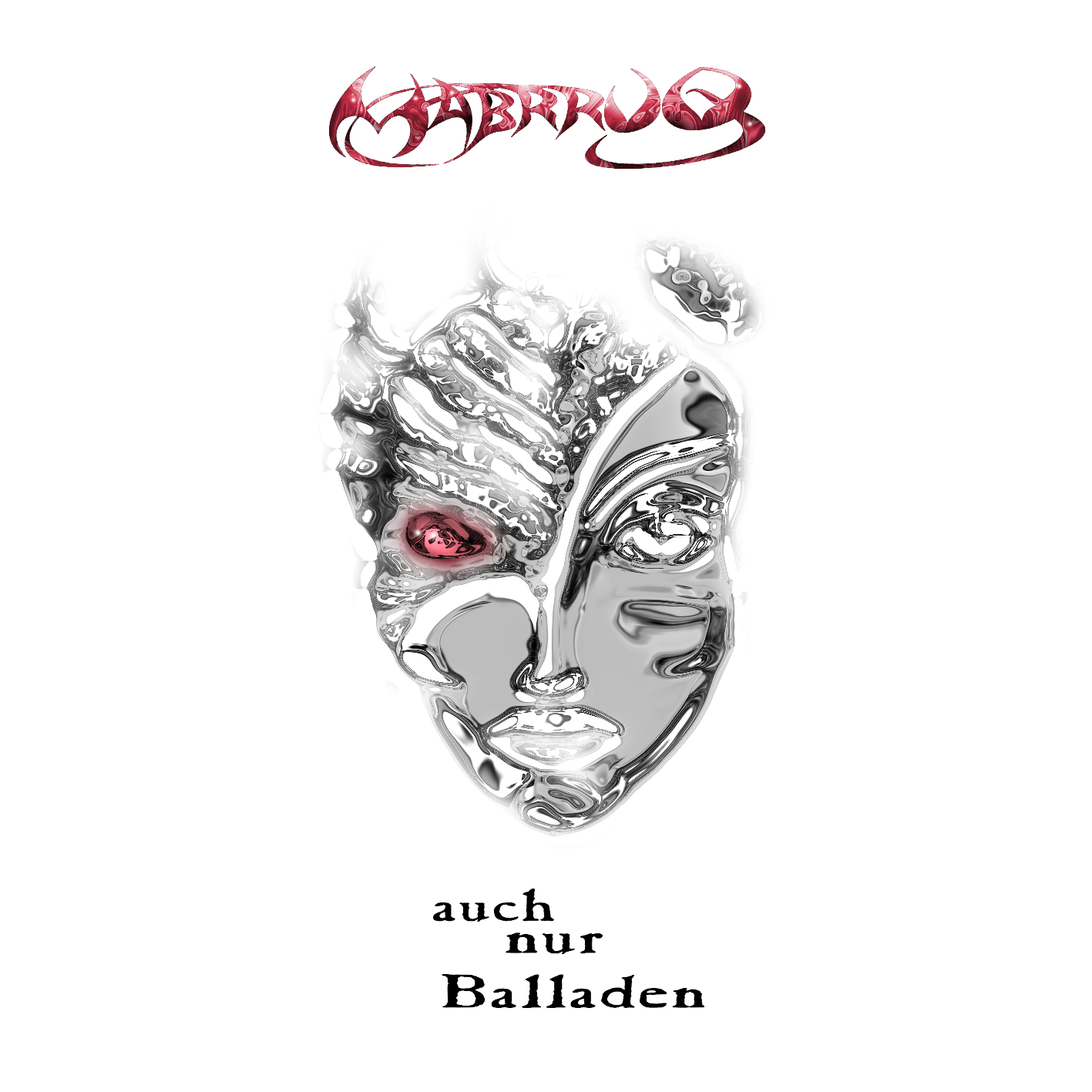
[Top image]
This design for a CD cover is one of the few images I could find around 20 years later. At the top of the picture you can see the logo that I designed for the band.
Next topic
Computer Magazine PowerUp
Computer Magazine PowerUp
Company Profile
Name: PowerUp
DE, Gelsenkirchen, Publisher, Small, B2C
“We want to publish the first local color computer magazine in Gelsenkirchen that addresses the topics of the digital age.” [Author team PowerUp in 1997]
Background story
I became a little better known through my design work for our band Mabrruq. A new mate from school approached me in early 1997 and asked if I would like to join a talented group of Tech enthusiasts. They were working on a computer magazine called PowerUp and were missing someone for the design work.
Business goal Make money with ads
Our goal was to make the magazine so successful that we could raise money for advertisements in the magazine. Previously, the magazine was printed out using a printer connected to a PC and then copied in black and white using a photocopier. The magazine was then distributed free of charge to schools.
Although there were interested advertising customers, they were bothered by the low quality and the irregular times when a new issue was published. Our new team helped convince future advertising customers to invest with a prototype.
Editor-in-chief Holger M. organised a good price for printing in a real printing company and some start-up capital for a first color edition. Together we managed to publish the first, well-financed color edition of PowerUp magazine in December 1998. Our plan was to raise enough money and increase circulation tenfold within a year.
My share in the success
Parallel to my work at PowerUp magazine, I worked without pay as a graphic designer at the local agency Blickwinkel in Gelsenkirchen Resse. Here I had my first experience with designing logos. This experience helped me design a new logo for the magazine, which looked quite professional.
From our editor-in-chief Holger M. I was able to learn how to design a professional layout for a magazine using software. So I learned to fine-tune paragraphs and prepare files for printing using Adobe Indesign's predecessor, Adobe PageMaker.
In addition, even before my education as a media designer, there were regular opportunities to design covers based on topics that were actually published.
Dissolution of the editorial team
We were successful in late 1999, but in early 2000 the leadership team split over disagreements about the direction of the company.
Education as a media designer for digital & print media
Working with the PowerUp team was the main reason why I dropped out of my studies in computer science and mathematics after two semesters at the University of Münster at the end of 1999.
I had heard about the new apprenticeship 'media designer for digital and print media' and felt this was the right direction for my future career.
In addition, even before my education as a media d So I started working on my first portfolio in order to apply for a apprenticeship in Cologne. Of course there were also many references from PoweUp.
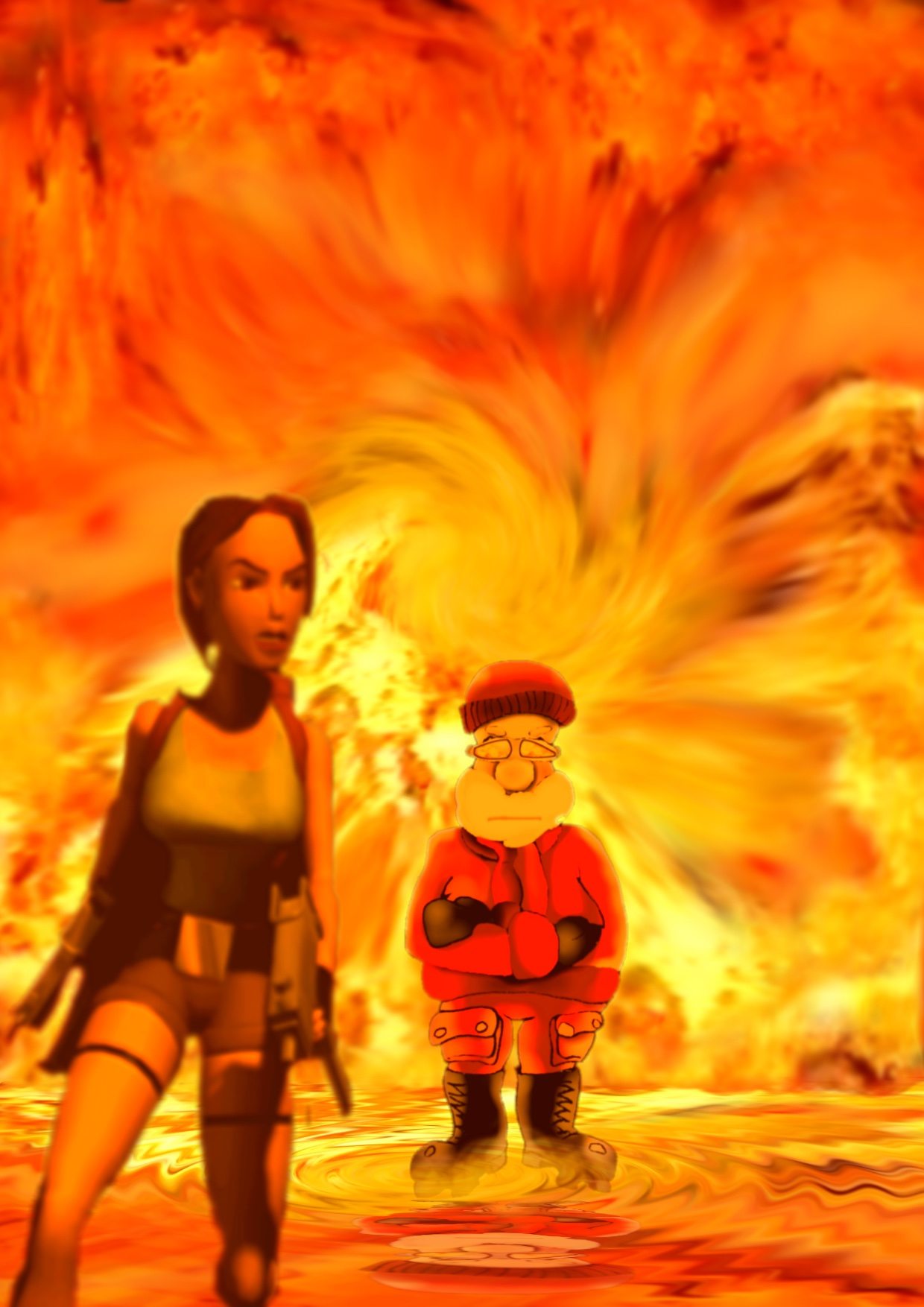
[Top image]
The image above shows the cover of the December 1998 issue of PowerUp in its entirety. I cut out the image of the world-famous computer character from press material. Santa Claus and the fire background were painted digitally using the mouse and Corel Photo.
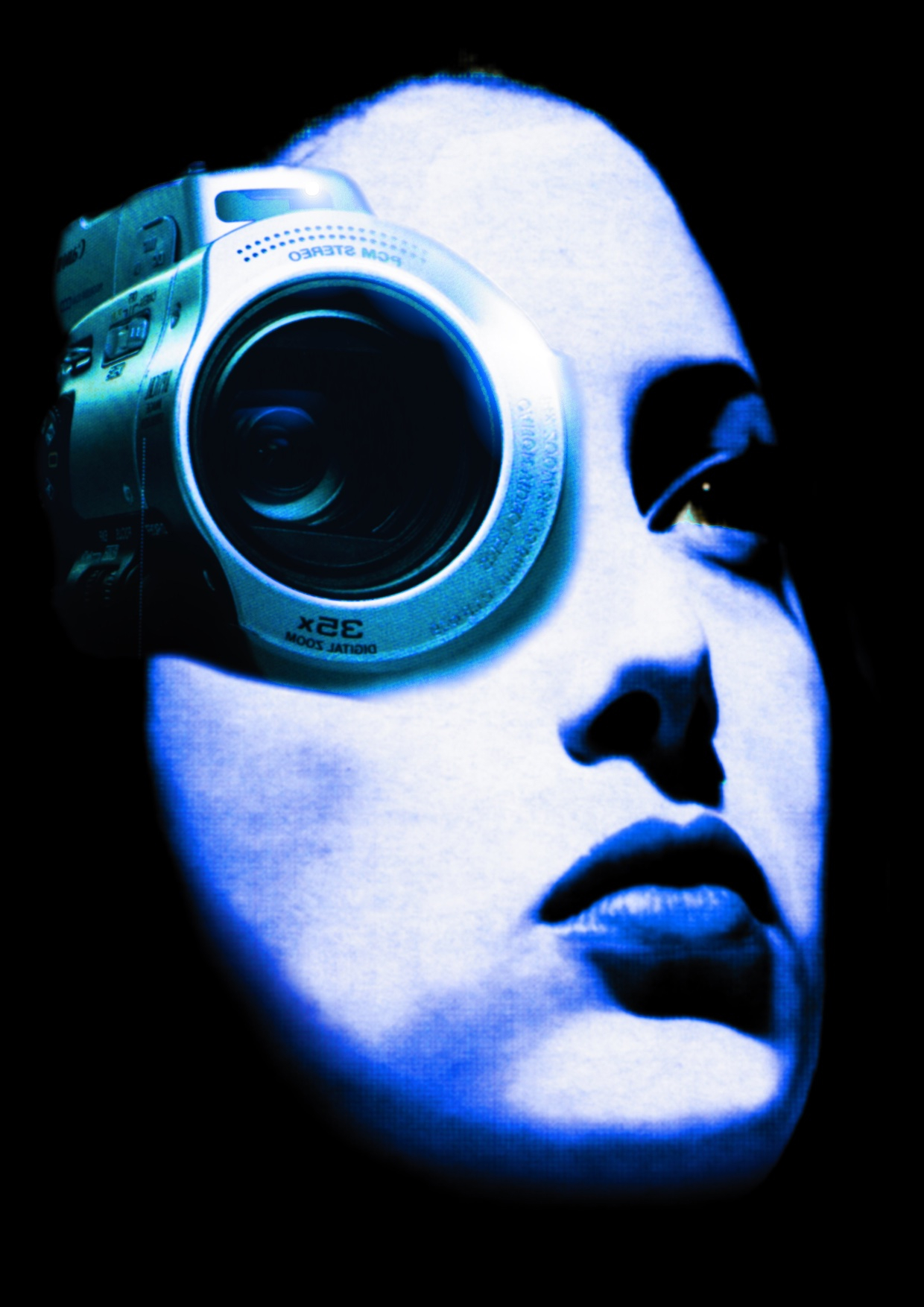
[Top image]
I created this image in Corel Photo for the cover of the second issue of PowerUp in color in 1999. To do this, I combined two images that were available to us as press material